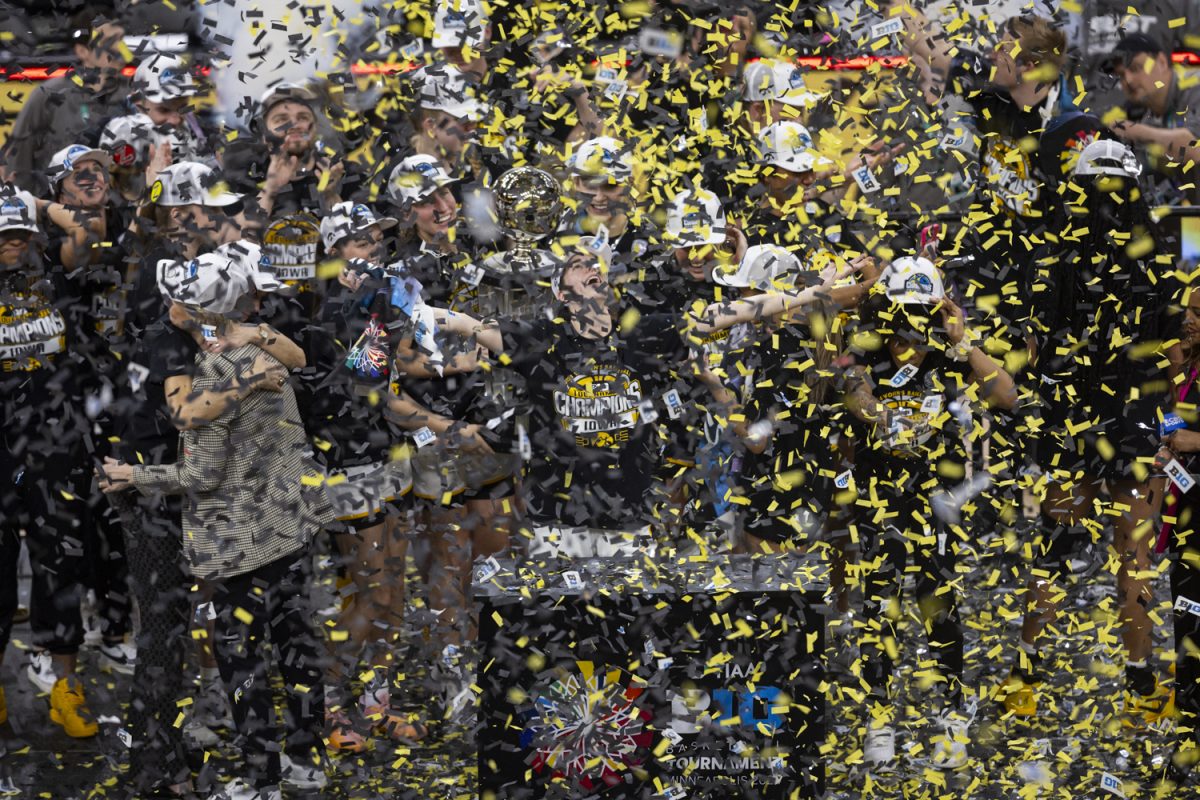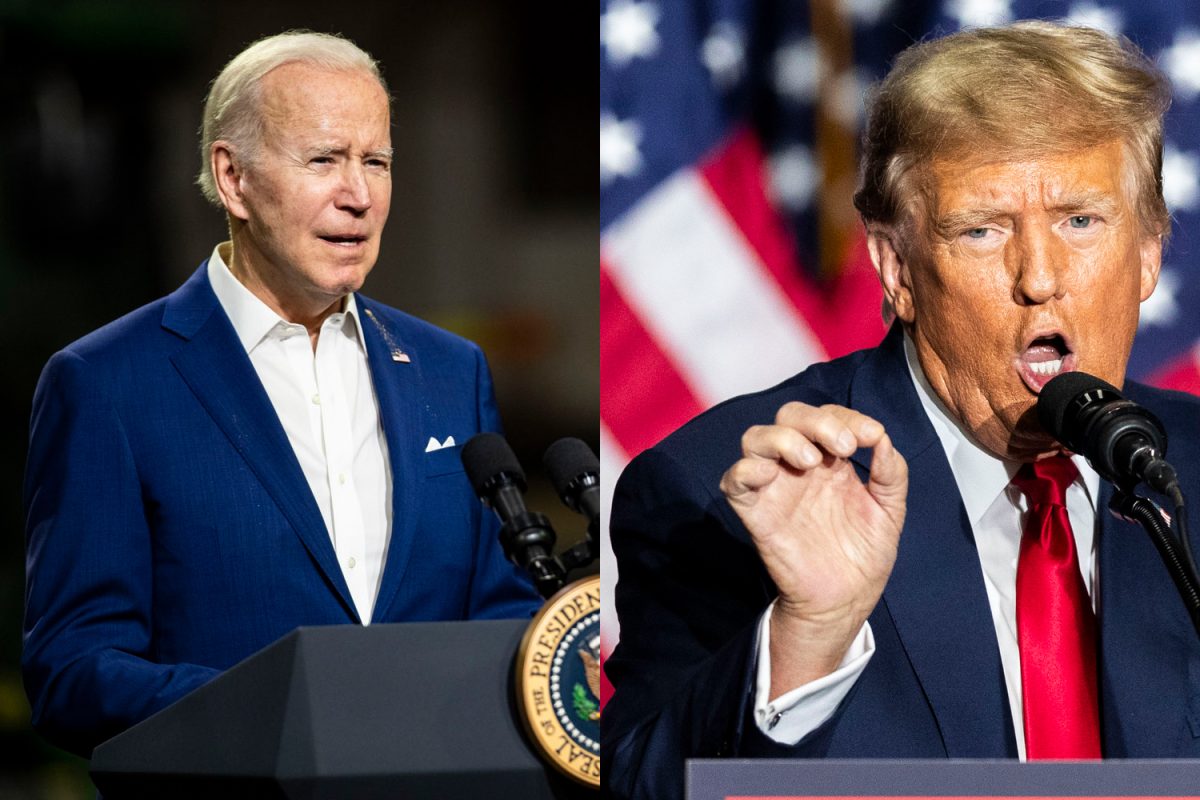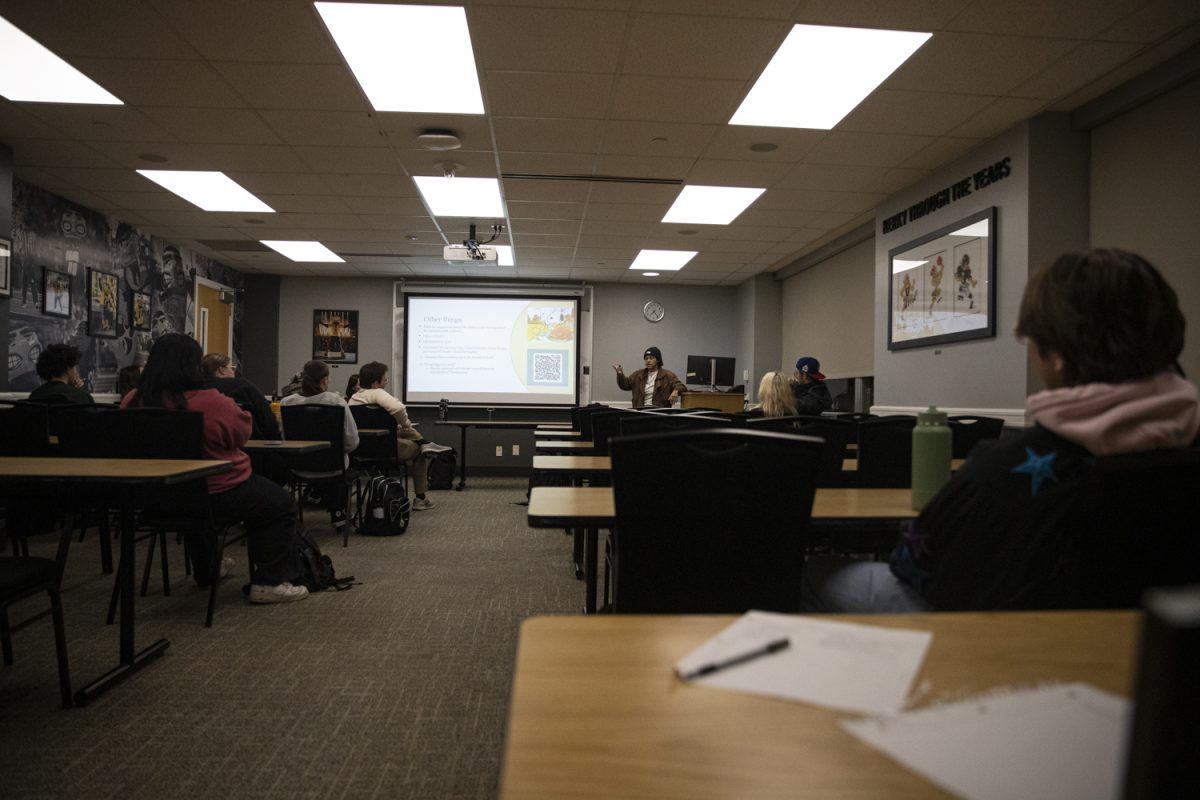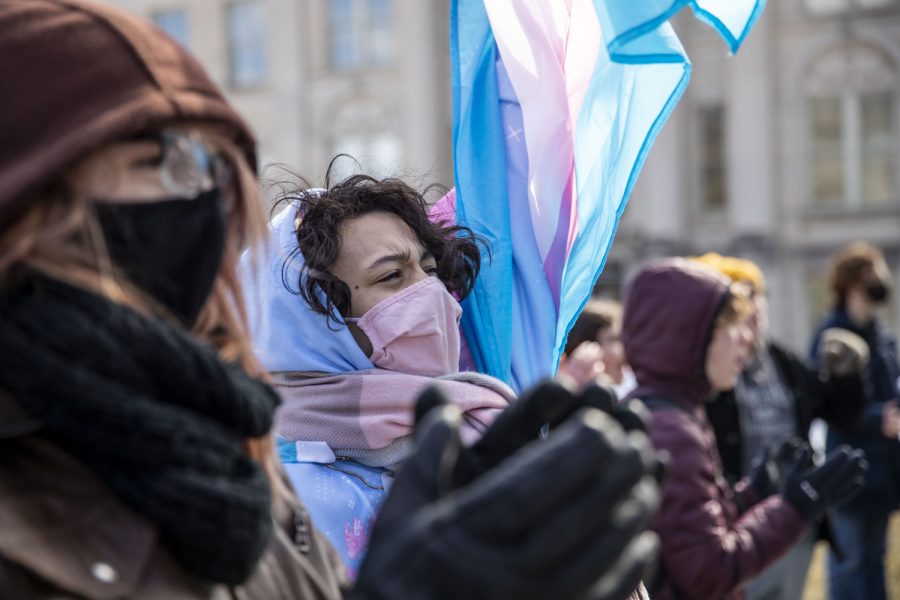As students of the University of Iowa, we have had a front-row seat to the explosive growth of women’s basketball this year. No longer is Iowa known just for pigs and corn — Caitlin Clark and the rest of the Iowa women’s basketball team have helped put our state and women’s basketball on the map.
At The Daily Iowan, we have seen our pageviews and social media output reach new heights, with an outpouring of love from basketball fans across the U.S. Simultaneously, we also see the sheer amount of vile, sexist hatred these athletes receive.
You would think that one of the best collegiate basketball players of all time would be exempt from Victorian-era commentary telling her she “belongs in the kitchen.”
You would be wrong.
Across platforms like Facebook, TikTok, and X, formerly known as Twitter, Clark and other women’s basketball players are constantly brought down. From their physical appearance to their status as women, these players face extreme scrutiny that men don’t encounter.
The public — or at least a vocal fraction of the public on social media — feel entitled to know everything about these players and their personal lives. Massive magazines like People are running stories and posting on social media to give the public details about Clark’s boyfriend, former Iowa basketball player Connor McCaffery.
The narrative surrounding Clark should be focused on her ability to pass and shoot a basketball. Instead, it has turned into countless people demanding information about her private life or spewing hatred toward her because she is a woman.
It’s one thing when improper commentary comes from strangers on the internet. It’s another when it’s coming from a member of the press.
On April 18, Clark was present at her first press conference for the Indiana Fever after being the No. 1 pick for the WNBA draft this year. During the conference, Gregg Doyel, a columnist from the Indianapolis Star, held his hands in a heart shape — the same that Clark does toward her parents during games.
“I like that you’re here,” Doyel began. “Start doing it to me and we’ll get along just fine,” he said about the heart gesture.
At best, it was an incredibly awkward interaction. At worst, it’s a gross display of power coming from a seasoned male professional in the media industry to a 22-year-old woman.
Doyel would later apologize online, writing a piece in the Indianapolis Star to Clark explaining his actions. He states that he is “sort of known locally, sigh, for having awkward conversations with people before asking brashly conversational questions.”
He then explained that this “awkwardness” was previously appropriate because he solely spoke to men.
The excuse was ultimately lackluster and dismissive of any complex meaning behind his comments, but it does point to a broader trend that must be addressed: Women athletes are not being respected for their talents and proficiency in their respective sports.
Over the past year, women’s basketball has grown at an exponential rate. From broken attendance numbers, viewership record after viewership record, and immense potential for growth in the WNBA, these athletes continue to prove that women’s basketball is a sport to be reckoned with.
While the public reaction to Doyel’s comments was overwhelmingly in support of Clark, the instance holds deeper implications surrounding inappropriate media coverage.
Because of Clark’s prominence in the national sphere, her experience is prime for highlighting this issue. However, compared to other women athletes, Clark only receives a fraction of this improper conduct. For women athletes of color, these comments are much worse.
When Angel Reese and the rest of LSU’s team played Iowa in 2023 during the championship game, the difference in commentary between Reese and Clark was beyond apparent. Where Clark’s energy and commentary were “growing the game,” Reese was coined as “classless.”
“I’ve been through so much. I’ve seen so much. I’ve been attacked so many times,” Reese said during a post-game press conference after LSU’s loss to Iowa in the 2024 NCAA Elite Eight game.
This instance points to an overarching trend in all of athletics — athletes of color are generally treated worse than white athletes.
During last year’s Final Four game where Iowa beat South Carolina in the NCAA Tournament, South Carolina coach Dawn Staley pointed out the unfair rhetoric being used to describe her team by national media outlets.
“The truth about our team? That’s a good question. We’re not bar fighters. We’re not thugs. We’re not monkeys. We’re not street fighters,” Staley said after the game. “Don’t judge us by the color of our skin. Judge us by how we approach the game.”
This unequal rhetoric between athletes of color and their white peers has been observed in detail. A study from sports research firm RunRepeat in partnership with the Professional Footballers’ Association found that English-language soccer commentators focused on physical prowess for players with darker skin tones while highlighting the intelligence of players with lighter skin tones. Media institutions and other commentators set the bar for how teams and players are received.
Fair, equitable coverage of all women athletes must be a priority for journalistic organizations that are covering these sports. Women as a whole deserve better.











